Composting meat, dairy, bones, bread, oils—even human waste!—turns it into black gold for your garden! Here’s how to compost it safely.
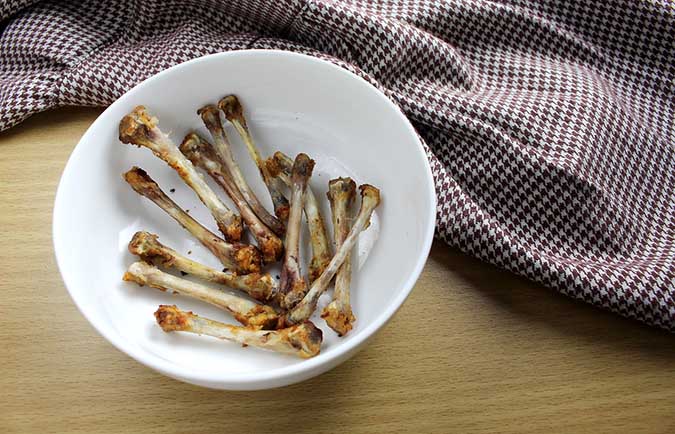
Image by achirathep from Pixabay
Composting Meat, Dairy, Bones, and Human Waste!
When I tell people about composting meat, dairy, bones, bread, etc., I often get the immediate “but you CAN’T!” reaction from normal people who follow all the silly rules on composting.
It’s ridiculous how complicated we’ve made composting.
Today we’ll talk about composting the scary stuff—the stuff THEY don’t want you to compost!
Composting Meat
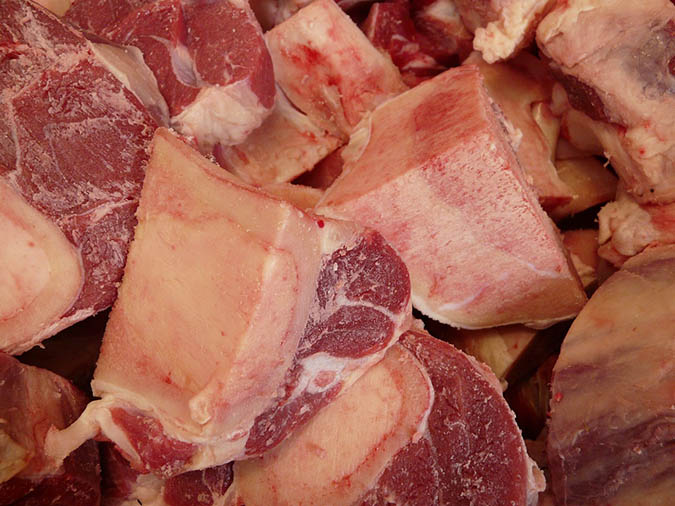
Image by Hans Braxmeier from Pixabay
The reason you’re often told “NO!” on meat is because it attracts varmints when placed in bins or tumblers above ground. There’s a simple solution to this problem: bury it.
Blood meal and bone meal are both valuable organic fertilizers. Fish emulsion is another good food for the soil. How come we buy these expensive slaughterhouse- and fishing-derived amendments while chucking bones and meat into the trash?
You May Also Enjoy:
“Nature Is an EXTREME Composter—You Can Be Too!”
“Jump-Start Your Compost With These 5 Free, DIY Compost Activators”
You’ve probably heard how the Indians taught the Pilgrims to bury fish carcasses beneath corn plants. That’s composting!
I’ve followed their lead and buried organ meat, beef stew, animal carcasses, and rotten leftovers in 2-3 feet deep holes and then covered them with a mound of dirt. A month or 2 later, I planted squash and sunflower seeds on the hills.
I’ll tell you what—the plants didn’t need any additional fertilizing! Plus, those areas remain fertile for years. The slow release of nutrients is just what the doctor ordered.
You can also add meat and bones to a regular compost bin. Just bury it in the middle. If you have a varmint-proof bin, that’s a big help. I had a big galvanized metal bin at one point that worked very well for throwing in everything from fish guts to lasagna.
Composting Bread, Dairy, and Oils
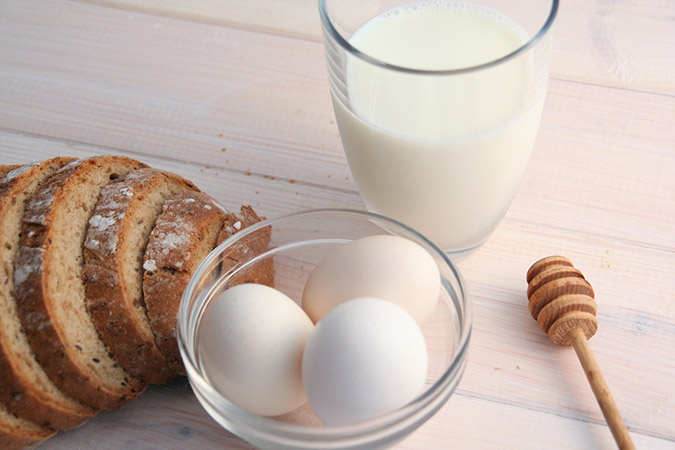
Image by Joanna Dubaj from Pixabay
I’ve been told not to compost bread, dairy, or oils. Oils gum up the decay process, bread takes a while to break down, and dairy makes things stink to high heaven. So—do we throw them away? Naw, not a chance. You can bury them in trenches or just add them to the compost pile. They’ll break down.
The health of your plants and the abundance of your harvest depends in huge part on the vitality of your soil. Discover how to get the rich, life-giving soil you’ve always wanted with TGN’s Compost and Soil Fertility Toolkit!
You can also feed them to chickens, then add the chicken manure to your compost pile. Since chickens can’t easily eat a bowl of used cooking oil, I have mixed it into the other scraps I’m feeding them and they’ll wolf it down along with everything else. In return, I get eggs and manure.
You May Also Enjoy:
“5 Things You Should Never Feed Worms”
If you have a lot of material and don’t have chickens, just bury the items and trust the bacteria and fungi to do their job over time.
A final note on bread: it’s good food for the fungi in your soil. If you do sheet composting, adding bread, rice, wheat, etc., can boost the soil life.
Composting Human ‘Waste’
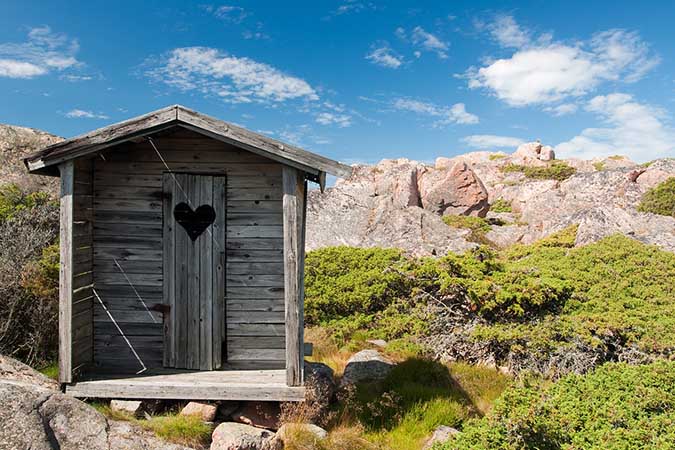
Image by Robert Smith from Pixabay
Composting your own urine and feces is controversial. Many people view the invention of the flush toilet as a great leap forward for mankind. The idea of eating food grown with poop provokes a deep revulsion in most Westerners.
However, in a survival situation—or for those who seek a closer connection to nature and are tired of wasting water and a potential source of fertilizer—it makes total sense. We use animal manures—why not human manure?
The answer that immediately springs to mind is, “Disease! What about E. coli? Dysentery? Tapeworms?”
Fear not. Those things can all be destroyed through composting.
You May Also Enjoy:
“Make Peace With Your Poop (and Then Make Compost With It!)”
The go-to guide on the subject of humanure is Joseph Jenkins’ “Humanure Handbook,” which uses a 2-year hot composting system and bucket sawdust toilets to make completely safe, rich compost. If someone wanted a setup for an off-grid cabin, this would be it.
Modifying the ‘Humanure’ Method
I’ve used a modified version of this method for years and was blown away by how fast a cooking compost pile can digest what would normally be a horrifying septic mess. I recently posted a video where I build one of Jenkins’ bucket toilets for a cabin I’m finishing up—you can see that here:
However, there is an even easier way: Burying raw sewage beneath plants works wonders for growth.
I remember reading about a system of mobile outhouses someone designed for use in Africa. Basically, a deep pit was dug in barren land and an outhouse was placed on top of it. After a year of use, the outhouse was moved and the top of the pit was filled with dirt. Then a tree was planted on top of it. The resulting concentrated fertility allowed the sapling to take hold even under tough conditions.
I’ve done the same with a mulberry tree to great effect.
Burying Poop: Will the Harvest Be Contaminated?
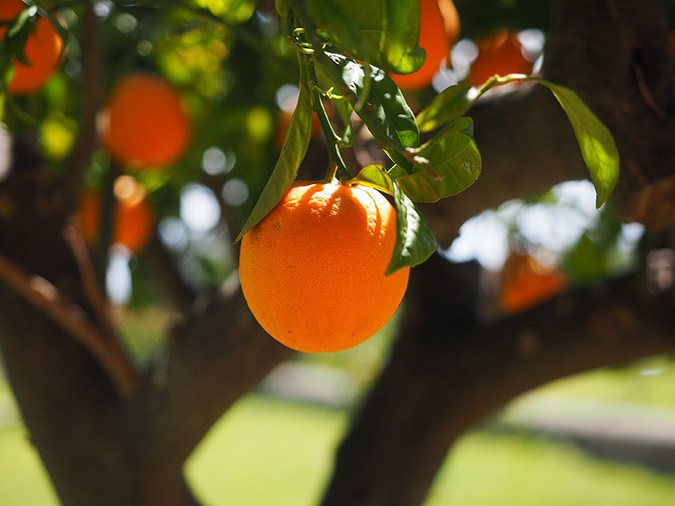
Image by Hans Braxmeier from Pixabay
Some folks worry that somehow the fruit of such a tree will be contaminated. A little bit of scientific inquiry rapidly dispels this notion. There’s no way for E. coli, a gut bacteria made to live inside nice warm animal and human intestines, can live and travel upwards through a plant.
It just doesn’t happen.
You May Also Enjoy:
“Make Peace With Your Poop (and Then Make Compost With It!)”
“Aerobic Compost Tea, Worm Tea, and Leachate—A Clarification”
“Jump-Start Your Compost With These 5 Free, DIY Compost Activators”
The danger, as we’ve seen in contaminated spinach recalls, is in raw waste being spattered onto produce that is then consumed. Burying makes this problem no longer a problem, provided you’re not in an area that floods. In that case, compost first. Don’t take stupid risks.
But … if you’re simply returning droppings to the earth, where they belong, your trees will thank you.
Using Chickens to Compost
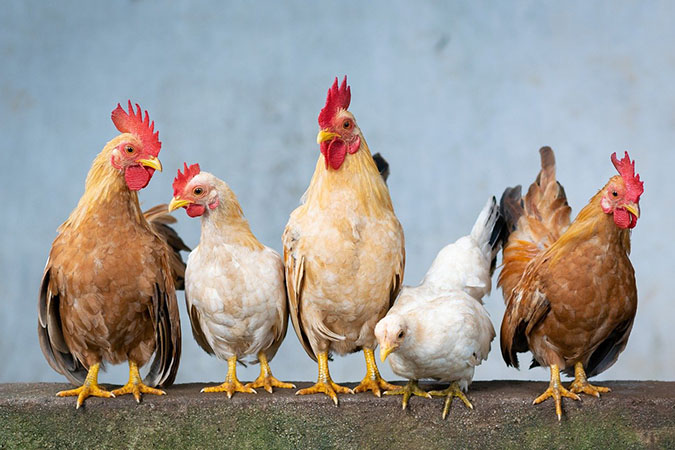
Image by Xuân Tuấn Anh Đặng from Pixabay
Another great method, as mentioned before, is to send stuff that doesn’t compost well right into the chicken pen.
Beyond the saving of manure for later use, if your chickens are in a small run, you can simply throw lots of stuff over the fence and let them compost it right on the ground. I pitch lots of seedy weeds, kitchen scraps, leftovers from church dinners, and other tough-to-compost items into the same spot in my chicken yard.
You May Also Enjoy:
“The One Thing You Need to Know About Compost Piles”
“5 Inexpensive, Simple Solutions For Small-Space Composting”
They eat it, turn it in, poop on it, turn it again—and leave behind some really nice dirt. You can then sift that dirt through some hardware cloth and dump it into your intensive beds or throw it around your trees.
Crops grow nicely in beds topped off with microbe and nutrient-rich dirt from the chicken run.
Other people build closed-in bins that chickens can access from the top. The birds love picking out insects and digging through the compost. That’s smarter—not harder.
The reasons to compost are myriad—and, as you can see, it doesn’t have to be rocket science. Using everything is key in survival situations and for frugal living. If supply lines shut down, you’re not getting any more 10-10-10—and it’s not as good for your garden as homemade compost anyhow.
Quit being afraid and quit throwing good stuff into landfills. Composting meat, bones, bread, and more adds valuable fertility to your soil. As I titled my best-selling book on composting, “Compost Everything”!
What Do You Think?
What do you think about composting meat, dairy, bones, and human waste? What are your best tips for extreme composting? Let us know in the comments section below!
______________
This is an updated version of an article that was originally published on July 15, 2019. The author may not currently be available to respond to comments, however we encourage our Community members to chime in to share their experiences and answer questions!
The Grow Network is a participant in the Amazon Services LLC Associates Program, an affiliate program designed to provide a means for our team to earn fees for recommending our favorite products! We may earn a small commission, at no additional cost to you, should you purchase an item after clicking one of our links. Thanks for supporting TGN!
David The Good is a Grow Network Change Maker, a gardening expert, and the author of five books you can find on Amazon: Compost Everything: The Good Guide to Extreme Composting, Grow or Die: The Good Guide to Survival Gardening, Totally Crazy Easy Florida Gardening, Create Your Own Florida Food Forest, and Push the Zone: The Good Guide to Growing Tropical Plants Beyond the Tropics. Find fresh gardening inspiration at his website TheSurvivalGardener.com and be sure to follow his popular YouTube channel.
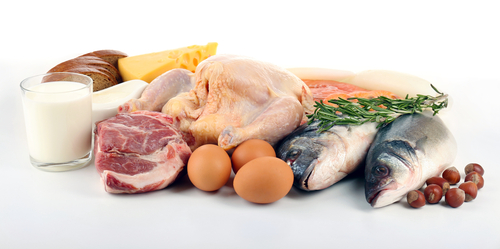







COMMENTS(4)
The simplest possible ‘compost.’ You can throw small leftovers and scraps, with the liquid they come with, directly on the surface of dirt or grass. Over the years, it builds up the soil for better grass and other plants.
David: A re-frame: the Good Lord has been composting rocks for us for millions of years! And there is plenty of nutrition left in them! I know you know this well: Crazy is just an opportunity for a re-frame. I am no where near as creative as you in thinking about stuff to compost, but I do have a question. We live where there are large predators who like meat too. How would you keep a standard pack of wolves or a typical 450 pound black bear from making off with your compost pile? I have kept my chickens from destroying compost piles by laying 2″x4″ scraps of fencing over them. Maybe I would let my squash grow through a perhaps larger mesh laid over the pile? Peg it down? My experience is that rocks don’t work consistently since they can be rolled off. Thanks!
I have a personal testimony of composting humanure. After reading the Humanure Handbook, I experimented in my backyard, suburb, home with 3 pallets zip tied together for the compost bin. It had a thick layer of straw at the bottom and I started layering it with my own waste, straw and then kitchen waste and straw, just like it describes to do in the book. If there was any odor at all, which there never was, you were to add more straw. I sat out next to the bin in the heat of the summer and there was never a smell! No one in the neighborhood knew what it was or what I was doing. I never told anyone because I thought I would be stopped. The only thing is, I did not get to reap the benefits of it because I sold the house and moved. I’m in the process of setting up again. I love the idea of not having to haul in manure, being able to use what I have available, of not having to muck around in turning a pile but letting the bugs, fungi etc. do the work, saving the water and to being able to make my own compost! I just love it!
thank you for this. right up my alley!!! i compost EVERYTHING, currently into the black plastic cone one can buy from the city clerk.
i have cats who are great mousers. i pay not much attention to the brown/green ratio. occassionally i jab a piece of rebar down into several areas to give it air. i am always so impressed with how fast it composts down.